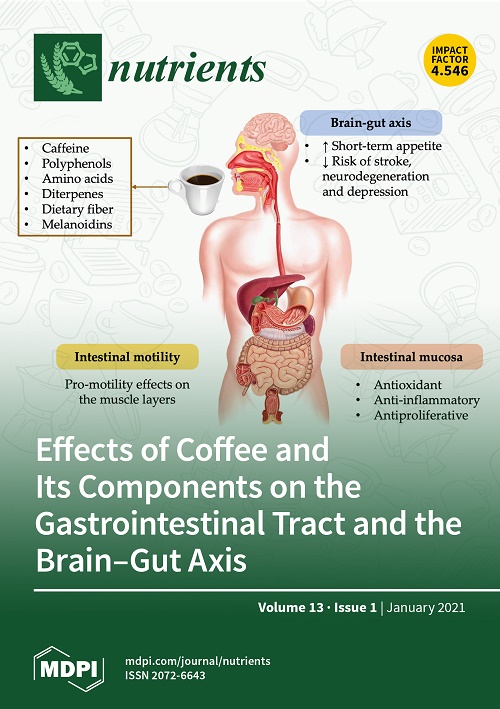Despite the fact that a few years ago the consumption of caffeine was considered harmful to health, the number of studies and scientific advances have shown that roasted coffee is a complex mixture of thousands of bioactive compounds with beneficial properties for both the cardiovascular system and for the nervous system. In addition, it has been observed that it acts on the gastrointestinal tract and the brain with multiple antioxidant or anti-inflammatory effects, among others.

The research team of the NeuGut group of the Rey Juan Carlos University, in collaboration with scientists from the Food Bioscience Group of the Institute for Research in Food Sciences (CIAL-CSIC-UAM), has carried out a review on the studies carried out in relation to the effects of coffee consumption on the gut-brain axis. This work has been the cover of the latest issue of the prestigious scientific journal Nutrients and the image summarizes the effects that the main components of coffee can produce on the gut-brain axis: "In the gut they can promote motility and protect the mucosa and in the brain they can improve appetite and reduce the risk of different neurological diseases and mental disorders, ”the researchers explain.
Protective effects on some types of cancer and on gastrointestinal motor function
In the review of the scientific literature carried out in this work, it has been observed that there are multiple epidemiological studies that have addressed the effects of coffee consumption associated with a lower risk of suffering from some types of cancer such as liver or breast. However, regarding the influence on gastrointestinal motor function of coffee consumption, the research team has concluded that it has hardly been studied in comparison with other systems such as cardiovascular or central nervous. "The knowledge accumulated so far on the effects of coffee and its specific compounds on the gastrointestinal tract as a whole or on its different organs, as well as the specific mechanisms of action that are exerted on the different types of cells present in the intestinal wall throughout the entire system, it is surprisingly rare, despite the fact that the gastrointestinal tract is the first body system to come into contact with ingested coffee, ”the researchers stress. The studies that have been carried out have revealed that both coffee and its by-products and its components provide beneficial effects on the permeability of the gastrointestinal mucosa and on the neural mechanisms of the intestinal wall responsible for its motor function, as well as on the axis brain-intestine.
In this sense, this work indicates that more studies are needed to understand the mechanisms of action of certain health-promoting properties of coffee in the gastrointestinal tract in order to transfer this knowledge to the industry, so that it develops functional foods that improve the health of the brain-gut axis.